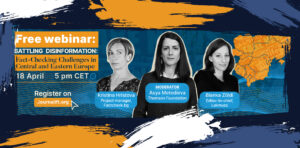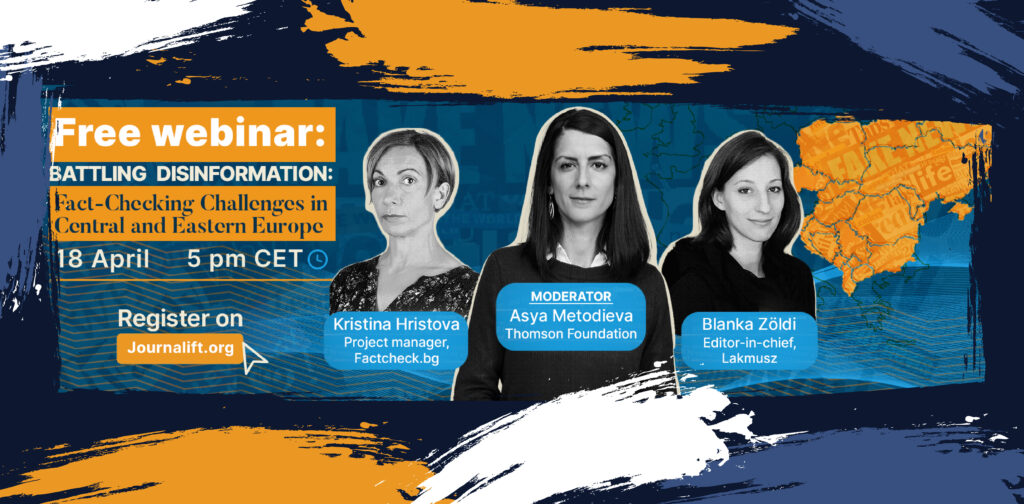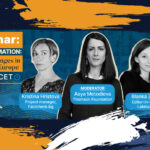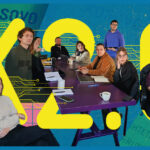Persons with disabilities are one of the marginalized groups in Bosnia and Herzegovina and Serbia facing discrimination and stigmatization on a daily basis. The definition of a person with a disability is still not constant in BiH, although BiH adopted the UN Convention on the Rights of Persons with Disabilities, but in Serbia by law the term “persons with disabilities” means “persons with congenital or acquired physical, sensory, intellectual or emotional disabilities. … “. Due to their deprived position in society, many organizations strive to improve their socialization and motivation for professional development by giving them the opportunity for employment.
Legal framework for persons with disabilities in BiH and Serbia
In Bosnia and Herzegovina, there are laws at various levels that regulate the work of persons with disabilities, which are 270,000 persons, according to the BiH Agency for Statistics. They define the employment relationship and records of employees with disabilities who are realized “in accordance with labor regulations, other regulations, collective agreement and labor regulations.” The laws also provide for the establishment of funds for vocational rehabilitation and employment of persons with disabilities, which implement a policy of development and improvement of vocational rehabilitation and employment of persons with disabilities.
On the other hand, in Serbia, according to the census from 2011, there are 571,780 persons with disabilities, there is the Law on Vocational Rehabilitation and Employment of Persons with Disabilities, which defines vocational rehabilitation as “organizing and implementing programs of measures and activities to train for appropriate employment, recruitment, maintenance of employment, advancement or change of professional career.” According to the same law, employed persons with disabilities are entitled during the rehabilitation to salary compensation in the amount of 100% of the average salary earned in the previous three months before joining this program, while salary compensation may not be less than the minimum wage in Serbia.
“Persons with disabilities in the Republic of Serbia represent one of the most vulnerable groups in all areas of social life, which is confirmed by the practice of the Commissioner, ie the number of complaints received by the institution due to discrimination based on disability,” emphasized Brankica Janković Commissioner for Equality.
In addition to the above, as with the law in BiH, the law in Serbia defines the employment of persons with disabilities under general and special conditions. General means “employment without adjustment of tasks, workplace or tasks and workplace”, while under special conditions is considered “employment with adjustment of tasks, workplace or tasks and workplace”.
According to the Istinomjer research, women with disabilities find it harder to get a job, unlike men who are preferred by their employers if they are in the category of war invalids. Also, the research states that out of the total number of persons with disabilities employed in 2015 in FBiH, women make up 26.6%, and in Republika Srpska only 6.2% for the period from 2013 to 2016.
Ana Kotur Erkić, a lawyer, journalist and activist in BiH who is also a person with a disability, started working as an activist for rights of people with disabilities seven years ago, although, as she says, it is her lifelong struggle. Activism later grew into what she called “human rights advocacy.” “I was also active as a child - I stood against some injustices, I was loud with questions “Why?” and “How?”, But for the first time I seriously and systematically got into this matter as a journalist who deals with the lives of people with disabilities. Then I was an editor of portal on issues related to people with disabilities, and then a contributor to many media and organizations. Being a human rights defender, as a person who goes through constant discrimination - almost from the moment I leave my home, although it would be possible to argue about home, not by my will, but by practices in construction, home decoration and the like, is not easy. This means that you are constantly exposed to criticism because you do not favor your environment, what are the norms of the society in which you live, but also to carry the burden of the community on your back”, says Kotur Erkić.

She points out that discrimination is most noticeable in the field of work, since the process of induction and permanent employment is still not available for the first job rejection. “Since I have experience with more than 80 rejections, going through this process is long and difficult, and I can say - to survive and endure is certainly even harder. There are moments when it is indescribably difficult for me, when I am desperate and when I feel very bad, since it is really unrealistic that after so many procedures - I am not a good candidate. But on the other hand, constant degradation and humiliation is a great motive for never wanting to agree to it and for me to keep fighting,” Kotur Erkić describes her experience.
As she says, her struggle is what she does, and it includes great joint successes with exceptional people, be they in a non-governmental or institutional framework, the academic community or a shared experience of life on the margins. “When I recall where my starting position was, what battles I won, I simply do not have the space to give up - because my environment, except the closest, society and the country in which I live are not favorable to the population I come from,” Kotur Erkić continues.
In her work, she turned to the part that people often forget, and that is advocacy for those who cannot speak out. “We have seen that society and the state do very little for all the people who live there, but have we done everything not to be in the position we are in? I know that I am still doing everything and that I am, in many segments, far ahead of what is expected of me. The employment process, as well as the work process itself, but most of all other processes - education, housing, access to justice, are not adapted for people with disabilities,” she emphasized.
She points out that this situation is followed by insufficient quality of laws and bylaws, followed by inadequate implementation and lack of real sanctions for those who do not want to employ a person with disabilities, and then inadequacy of vacancies, work methods, work environment, valorization of results and more.
All this, emphasizes Kotur Erkić, shows that the labor rights of persons with disabilities are not put in a good framework, i.e. they are not implemented in an adequate way.
Getting the job through NGO sector
Goran Rojević is the director and founder of the organization “Children's Heart” from Serbia, which has been helping people with disabilities, their parents and people who care for them for 20 years. According to Rojević, the organization now runs the “Sounds of the Heart” cafe, which according to them is the only one in the region where all employees are people with mental disabilities. “The crown of our work is that we wanted to make them as independent as possible and enable them to live independently, to be professionally useful members of society. The cafe, together with the work center, aimed not to differ much from life in Belgrade, where restaurants and cafes function best. We have determined professions that can be performed by our users”, says Rojević.
He points out that the employees live with them and go through the “School of Life” and “School of Life Skills” programs as well as additional training for bartenders and waiters. “We place them in concrete life situations from which they learn at a concrete level, where you train him as a waiter, as a bartender and then you put him in a challenging situation. When he says “but I don't know this,” then you teach him. The social mentor helps him in all this”, describes Rojević.
He emphasizes that they are exceptional in all fields of work, but also a good atmosphere is important for their productivity. Rojević adds that when they finish one job, they help other colleagues in their activities and that working in a cafe has a positive effect on them. “Together we ensured development of various social services, as well as the awareness of people that they no longer think so much about their suffering in past, but that they can help some other people. There has been a greater openness of society than 20 years ago, when it was more focused on itself and its problems. Inclusion has made them to be present in many schools, kindergartens, and educational institutions where they were not present 20 years ago”, adds Rojević, who emphasizes that visibility must be constantly worked on.
Rojević states that people with mental disorders age much faster, so going over 40, 50 leads to a decrease in their potential, so it is much easier to hire them at an early age, so that they work longer and be active members of the community. “When they are 18, they look for some activities, where a lot of physical energy is spent. What we have done in the continuation of this is the “Center for Training and Employment of Persons with Disabilities” and within that, after they are able to work, we recommend them to certain companies from the local community, and those companies employ them. They always have a kind of mentorship in us, where, in case of some problems, we react as mediators in their elimination.”
In addition to cafes, the organization also has a “Personal companion of the child” service, which operates at the local level through which they apply for a tender announced by the local government. In this way, they train personal assistants and create cooperation with schools and institutions attended by children with disabilities. He also says that employees manage to become independent. “We have a boy who works in a printing house. But we are the ones looking for their jobs, because they see in us the certainty that we will continue to take care of them as an organization.”
Marko, one of the employees, regularly makes espresso and waits for the reaction of the guests when they taste his coffee. Unlike Marko, Nemanja decorates the beehives with his drawings for the future agricultural farm in Vinča, where people with disabilities will work. “I am drawing the coat of arms of Obrenović on the baskets here. I try to make it look perfect. I get a task from work instructors”, says Nemanja (27), one of the employees whose mentor says he has a photographic memory.

“I try to be nice and make collaborations even for celebrities to come here. I also wanted the actors from the “Game of Fate” series to come here. As he says, he would love to see foreign actors live and would not be ashamed to meet them. “I get the assignment to be in a cafe sometimes, and sometimes in a workshop to help. I make coffee, cocktails and lemonades. Sometimes I cook lunch in the kitchen. I know how to make macaroni, I know pasta, I know how to cook soup. I know how to bake sausages, and it will be easy for me to prepare mashed potatoes”, this is how Nemanja describes his working day.
He says that he can cook peas and green beans and make coffee, but also draw. It is not difficult for the versatile Nemanja to draw the coat of arms of the “Children's Heart”, he says that he can do it. But he likes least to have someone joke with him, he does not like that, as well as unsalted food. “I love everything. It's not hard for me to need lavender. We sell bags. We also sell T-shirts, tote bags and cups,” he describes.
When asked how long he has been here, Nemanja answered immediately “from 24 December 2018”. He tried to look for a job elsewhere, but it was difficult for him, but he says that he would like to do some work related to drawing: “I would like that, I was thinking of doing something in a printing house, printing T-shirts and mugs. One day, not now. I still have to learn that from work instructors. I can't learn anything without them.” When asked where he would like to travel, he listed a dozen cities across the U.S. and Canada in a matter of seconds.
Another employee, Anđela (22), has been growing lavender for three years and she feels great. “I listen to what the work instructors tell me, it's not a problem for me,” she says. In addition to growing lavender, she also likes to work as a waiter and in the kitchen. She would not like to change anything: “I would stay here, I would not change anything. Unless one day I get bored. Maybe I would do something with a computer, write and draw, something like that. I also like to draw at home, take paper and draw”, declares Anđela.
Parents as greatest support for persons with disabilities
On the other hand, in a small town in BiH, Goražde, functions an “Association of Persons with Cerebral Palsy and Dystrophy”, which for many represents a positive side of the society in which they live. One of their members, Alen Hedo, shares his life story. “Since the seventh month of my life, I have been a person with cerebral palsy. The family tried to include me in society. When it came time to enroll in school, the biggest problem was, to some extent, architectural barriers. Before that, there were people who thought it might be better for me to be at home than to go to school because they thought it was too difficult for me,” said Allen, who said that the biggest problems that accompanied him through school were upper floors and stairs.

But Allen overcame it all with the help of a family without which, as he describes, he would not be what he is today. Growing up with two sisters, he received full support from them and his parents, but also, as he says, a little more attention. “After enrolling in primary school, my mother firmly decided that she wanted me to go to school. We didn’t have a car at the time. She carried me every day for five kilometers in both directions including a backpack and all the equipment I needed. After a couple of years, that was resolved. A van was provided to drive the teachers and pick me up along the way. After that, I enrolled in high school, my father was driving me,” continues Allen, who explains that his father could not get a job because he drove him to school every day, and to university, sports activities and practice.
He found other activities in the Association, he points out that he does not feel different there. “The environment and society, ordinary people and my friends have never shown that I need to get less. It was an indication to me that I actually need to fight like any other person, to achieve in every sense of life. The same is true for education. One of the motives is my family. The second reason was to show others that it is possible, if you decide that your place is among those with a master degree”, says Allen, who plans to enroll in a doctorate after the master's degree.

After graduating, he was immediately given the opportunity to volunteer at the local MIA. There, he says, he had all the conditions he needed as a person with a disability. “There were no stairs, the workplace was adjusted and I really enjoyed every day while working there. I was especially happy to work with people, with citizens, who had the opportunity to meet people with disabilities through me and my engagement. I worked on issuing personal documents, there I met people who are mostly physically capable. They had the opportunity to see that people with disabilities deserve a place in society.”
He was subsequently employed in high school, but a coronavirus pandemic halted his two-year employment. Since then, his struggle for re-employment has begun. “It is very difficult for people with disabilities to get a job. The system is somewhat to blame, and on the other hand, the private, real sector does not invest enough in knowledge about people with disabilities, and they prefer and want to pay certain penalties to the state, but not to employ people with disabilities. It solves the problem to some extent, but it's not something that really helps a person with a disability,” says Allen, who believes this is one of the burning issues for people with disabilities.
According to Alen, every investor who invests in Goražde should receive benefits, but on the condition that a part of the employees are people with disabilities because the job can be adjusted. After talking to the mayor of Goražde, he became motivated to continue working in his hometown, which he did not want to leave. “I had the opportunity to leave the town, but Goražde is a place where I am at home. Every street is my house. All these people are mine and I see them as a family. If I went to Sarajevo or anywhere to work, I would lose much more than I could gain. So he (the mayor) gave me hope that I would be employed since he applied to the Fund for Rehabilitation and Employment of Persons with Disabilities.”
According to Allen, the Fund for Professional Rehabilitation and Employment of Persons with Disabilities recently announced a public call for grants for legal entities that want to employ a person with a disability or for persons with disabilities who are self-employed. “In my case, the Town Administration, headed by Mayor Ernest Imamović, applied within that public call, the application was orderly and in the end, the Town Administration leadership received approval of funds for my employment for one year. Now it is up to the Mayor and town administration, which should complete all the procedures so that I can start working soon. I believe that we will not wait long for this procedure to be completed as soon as possible so my employment can start and I can be at service for all citizens”, Allen states happily, for whom employment is the most important thing in life and gives him strength and desire for life.
He explains that there are no social stigmas against people with disabilities in Goražde. “You have no problems on the street, no one will ever call you with derogatory names. The only thing you can encounter is that someone is not so free then approaches you, which is justified because he/she does not know your needs and possibilities. But if you make a request or ask for help, trust me you will get more than you asked for.”

The desire to be behind the wheel was something he had always dreamed of, which he finally achieved. In the beginning, he says, they didn’t have a vehicle so he often sat behind the wheel of his uncle’s vehicle. He now drives without any problems, even though he had obstacles in the process of taking the exam. “Whenever he (the uncle) came, the first hours I should spend with my family, I spent behind the wheel. I really love it. On the other hand, I think that the vehicle is kind of an orthopedic aid for me, and that's how I use it,” he concludes. Various obstacles, prejudices, stereotypes and non-implementation of laws are the key setbacks in the system of BiH and Serbia. Anja, Alen, Anđela, Marko and Nemanja represent a statistical rarity, but also a great step forward in the process of employing people with disabilities and an example to all.
By Kristina Gadže (Bosnia and Herzegovina), Alem Bajramović (Bosnia and Herzegovina) and Filip Mirilović (Serbia)































